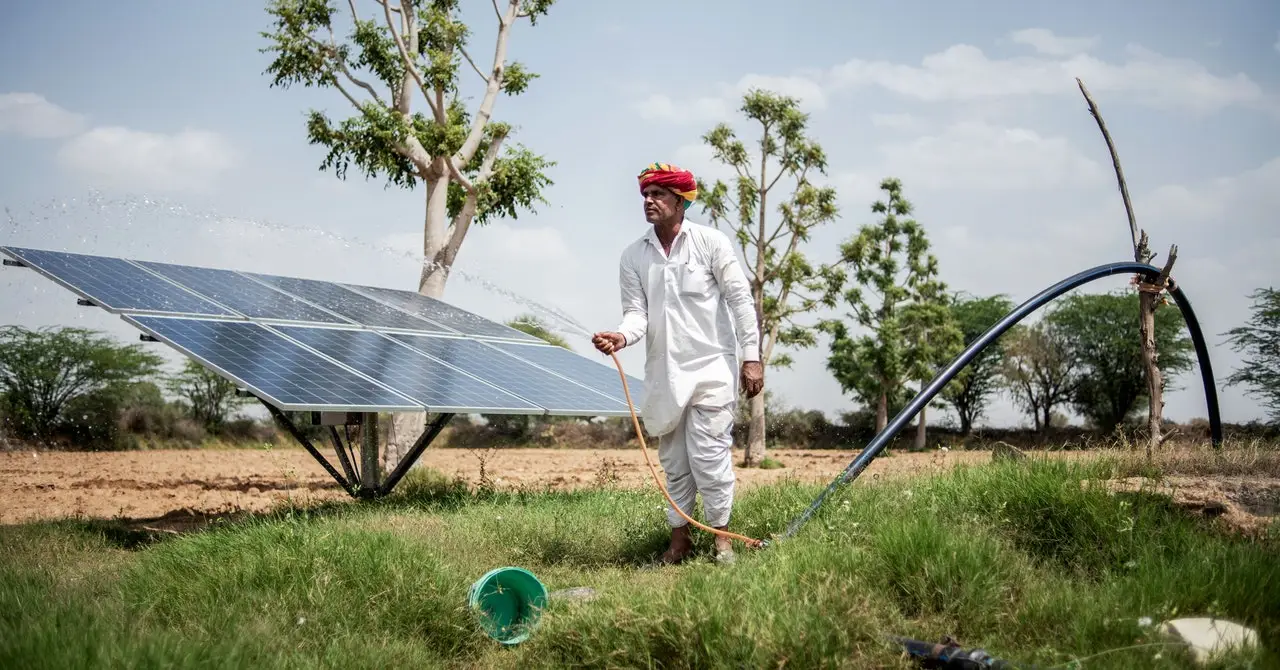Solar pumps are spreading rapidly among rural communities in many water-starved regions across India, Africa, and elsewhere. These devices can tap underground water all day long at no charge, without government scrutiny.
For now, they can be great news for farmers, with the potential to transform agriculture and improve food security. The pumps can supply water throughout the daylight hours, extending their croplands into deserts, ending their reliance on unpredictable rains, and sometimes replacing existing costly-to-operate diesel or grid-powered pumps.
But this solar-powered hydrological revolution is emptying already-stressed underground water reserves—also known as groundwaters or aquifers. The very success of solar pumps is “threatening the viability of many aquifers already at risk of running dry,” Soumya Balasubramanya, an economist at the World Bank with extensive experience of water policy, warned in January.
An innovation that initially looked capable of reducing fossil-fuel consumption while also helping farmers prosper is rapidly turning into an environmental time bomb.



It is really your classic tragedy of the commons issue that capitalism has always been bad at solving.